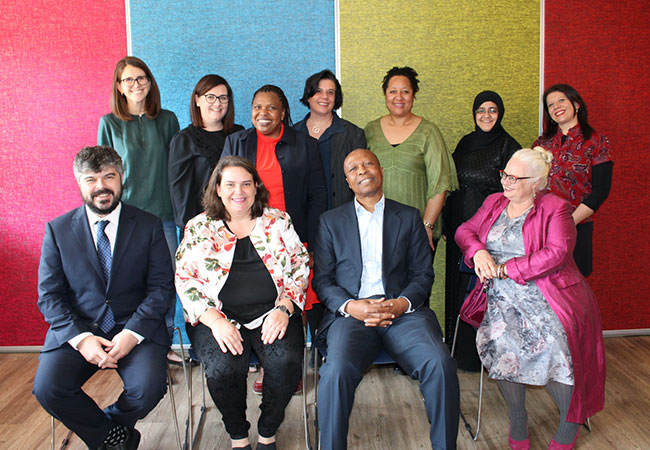The Covid-19 pandemic forced many businesses worldwide to sit up with a jolt and smell the coffee: if ever there was a time for business unusual, this was it. And how.
But surprisingly for some, in a corporate environment where “strong” and “tough” are often equated with “successful”, the so-called “soft” skills of empathy, adaptability and humanity have come to the fore and commandeered the stage in the Covid-19 era. And it was those very attributes that steered many a business through the choppy waters of successive lockdowns and a constrained economy.
When the pandemic hit South Africa like a body blow, Flow Communications, a two-thirds women-owned communications and marketing agency, realised long before the term “pivot” became fashionable, that it had to think on its feet and act with the agility of an Olympic gymnast if it was to survive.
Being nimble and acting swiftly with a “people first” approach would go on to pay dividends, aided, of course, by the use of technology. The first step, in March 2020, was to close up the Flow offices in Johannesburg and Cape Town and set staff up for working from home for their own safety – this was even before the first “hard” lockdown had been announced.
Leading with agility and empathy
Productivity soared as Flowstars (as Flow employees are called) gradually adjusted to the new flexible working arrangement, and new revenue streams were created by curating and managing virtual events. The decision was made to move to a permanent remote-working system in August 2020.
Agility and adaptability helped the company turn adversity into opportunity and now, Flow is thriving as a fully remote company. It has expanded its scope and vision to embrace the global stage and court more international clients, purely because the world is its oyster thanks to the possibilities offered by digital technologies.
“Employees may still be physically distanced, but are in many ways closer than ever, as being in the same boat has made them more attuned to the needs of each other and clients,” says Flow’s CEO, Tara Turkington. And much of this success can be attributed to what has traditionally been denigrated as the “soft” and “feminine” skill of empathy.
“Corporate leadership has traditionally been thought of largely in financial terms – profits reported, dividends paid, market share captured and the like,” she says. “But for me, the best kind of leadership today is empathetic and brave, and above all puts people first. Without its people, no company can grow and prosper.
“Happy people – people who are valued, respected and adored – produce better services and products, leading in turn to happier customers and ultimately growing a better company. Good leadership is also about ensuring sustainability. It’s about protecting and growing jobs – which is more important than ever in South Africa – and, at the same time, looking after the world’s natural environment, which is so frighteningly fragile.
“To be a good leader today in the 21st-century and Covid-19 context, you need big ears to truly listen well, a bold vision, guts of steel and a brave heart that puts those you lead first.”
Listening and multi-tasking
Flow’s managing director, Tiffany Turkington-Palmer, believes the pandemic has shown the corporate world that it should not underestimate what women bring to the decision-making table – as much in times of crisis as in times of relative calm.
“Women are multitaskers and are known for managing homes, jobs, families and other responsibilities simultaneously. This means many women we work with are decisive – they evaluate the pros, cons and issues and come to good and quick decisions,” she says.
“Women are also good listeners. This means that by the time they are at the decision-making stage, they have listened thoughtfully to a variety of input and perspectives that will inform the choices they make. We have certainly seen this come to the fore at Flow over the past year in particular, with video meetings teaching us to be more intentional in our listening and our understanding.”
Diversity is key to creativity
People vastly underestimate how an organisation’s diversity can be harnessed as a catalyst to help it stay current and relevant, and even thrive in times of flux, notes Flow Board member and director of content, Edwina van der Burg. “Diversity in teams is extremely important to an organisation’s success. But to be effective, that diversity needs to extend across all spheres of life – that is, gender, age, cultural background, viewpoints, life experiences and so on,” she says.
“Having diverse teams giving input at various levels in the company means access to a broader range of ideas, which results in better problem-solving, increased creativity and innovation, and happier clients.”
Human assets are your most prized assets
Financial director and fellow board member, Saajidah Suliman, deals with columns of figures on a daily basis, but during the pandemic she became even more acutely aware that the essence of her work goes beyond the balance sheet and has people at the heart of the equation.
“Finance is an excellent reporting and decision-making tool, and I have a passion that I hold quite dear to uphold all aspects of my profession, but to evaluate the company successfully, there is a need to look beyond just the numbers and focus on the core values and the people within your organisation,” she says.
“We firmly believe that putting human assets – your most prized assets – at the centre of your business, as we have done over this past year, helps your business to survive in tough times and thrive in good times.”




















































































